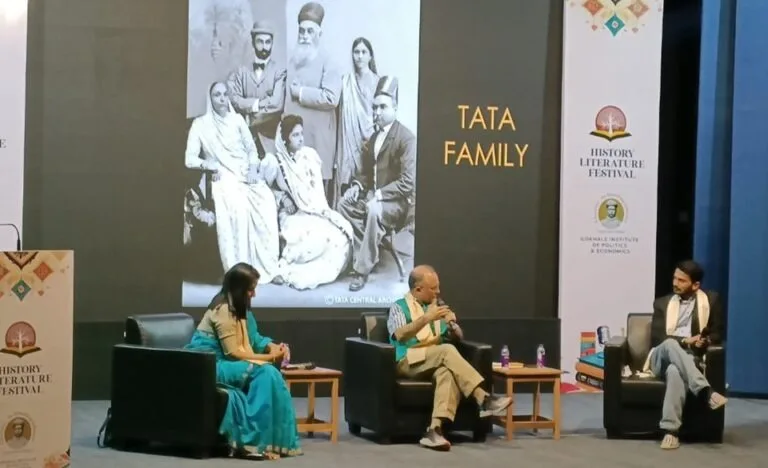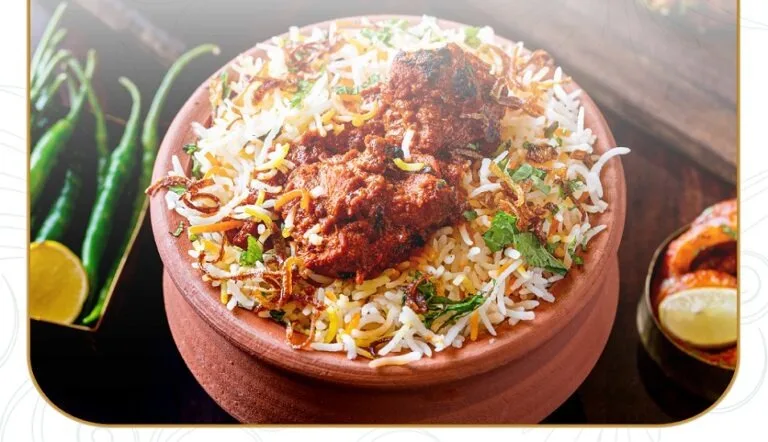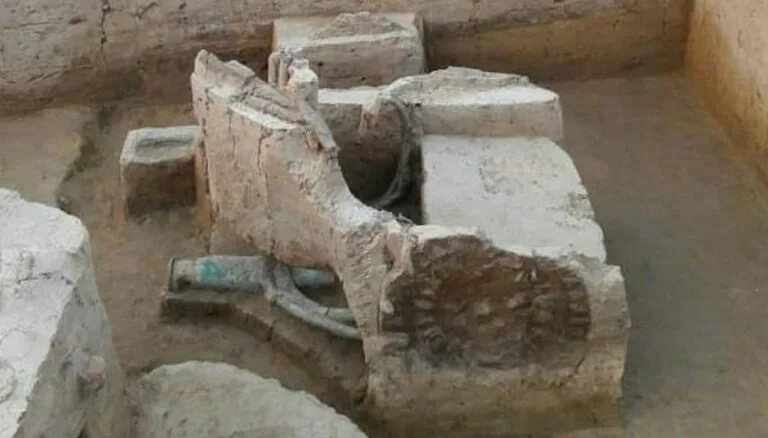Pune : Highlights from the Gokhale Institute’s History Literature Festival, Explained Here

Pune : Highlights from the Gokhale Institute's History Literature Festival, Explained Here
The Gokhale Institute of Politics and Economics recently hosted an enthralling History Literature Festival, exploring diverse facets of India’s past and culture.
Among the array of topics discussed were the transformative impacts of iconic industrial families like Tata and Bajaj, the intricate history of Indian cuisine with a focus on the beloved Biryani dish, and insightful revelations about the Indian Railways’ journey through time.

The session on the Tata and Bajaj Groups provided intriguing insights into their profound influence not only on Pune but also on the nation’s industrial landscape.
Renowned author Harish Bhat shed light on the pioneering initiatives of the Tata Group, including their historic contributions to steel production and welfare measures for workers. Similarly, heritage management expert Sanghamitra Chatterjee delved into the captivating saga of the Bajaj family, highlighting their deep-rooted association with Mahatma Gandhi and their ethos of social responsibility.
The festival also delved into the culinary tapestry of India, with a particular focus on the fascinating history of Biryani. Historian Pushpesh Pant, economist Pradeep Apte, and archaeologist Kurush Dalal unraveled the intricate layers of Indian cuisine, tracing its evolution from survival-based sustenance to a vibrant cultural phenomenon. Discussions ranged from the economic dynamics of food production to the cultural significance of millets and the historical origins of iconic dishes like Biryani.
Moreover, sessions on the history of Indian Railways and the city of Pune provided captivating narratives of India’s socio-economic transformation. Experts delved into the pre-independence era of Indian Railways, illuminating its role in shaping India’s growth trajectory and freedom movement. Meanwhile, discussions on Pune’s rich heritage explored its ancient origins, pivotal role in historical events, and enduring cultural legacy.
One of the highlights of the festival was the insightful dialogue with archaeologists Sanjay and Arvin Manjul, who unveiled groundbreaking discoveries from the archaeological site at Sinauli. Their discovery of a 4,000-year-old chariot challenged existing narratives and offered new insights into ancient Indian civilization, underscoring the importance of ongoing research and exploration in understanding India’s rich heritage.

Overall, the History Literature Festival at the Gokhale Institute of Politics and Economics served as a platform for intellectual exchange, fostering a deeper appreciation for India’s multifaceted history, culture, and heritage. From industrial pioneers to culinary delights and archaeological marvels, the festival celebrated the diverse tapestry of India’s past, inspiring curiosity and exploration into its fascinating narratives.










